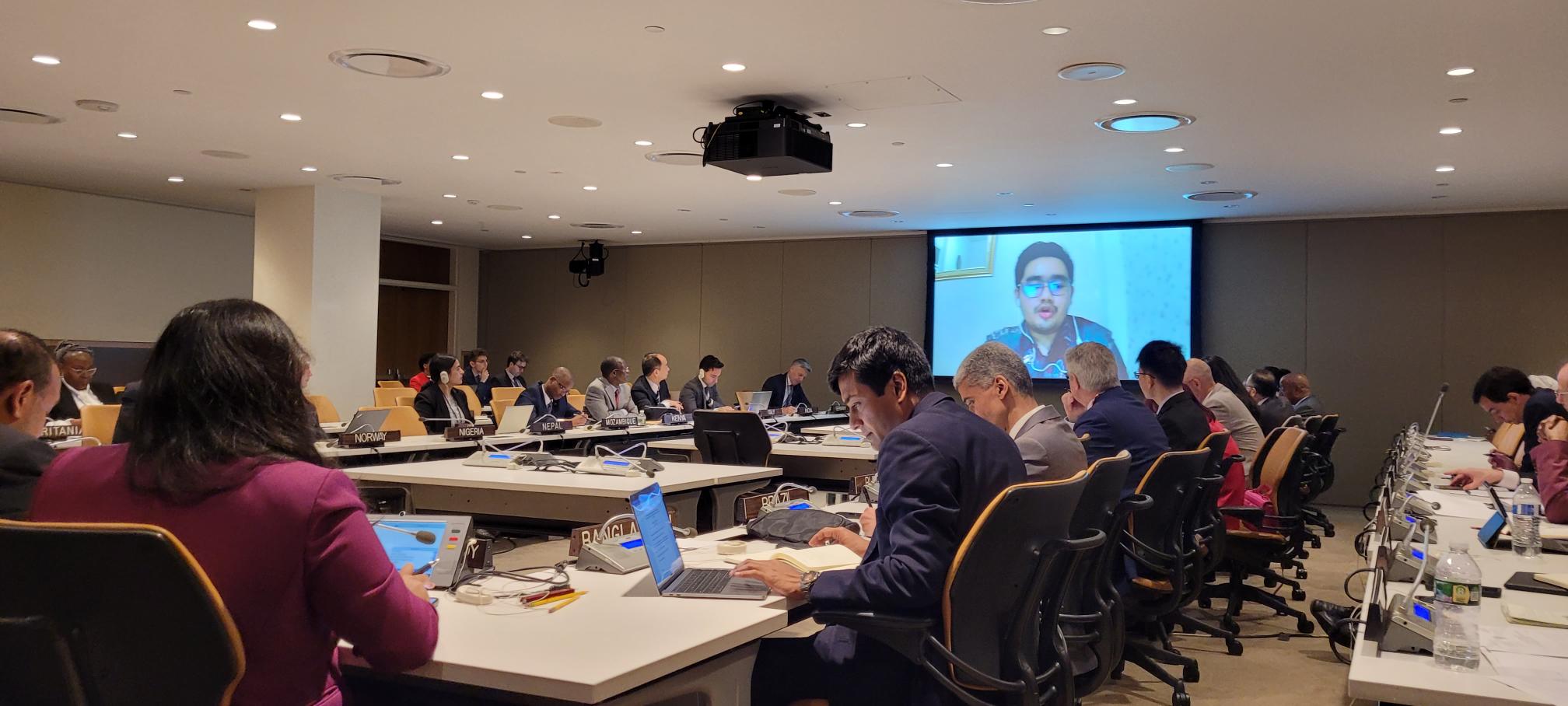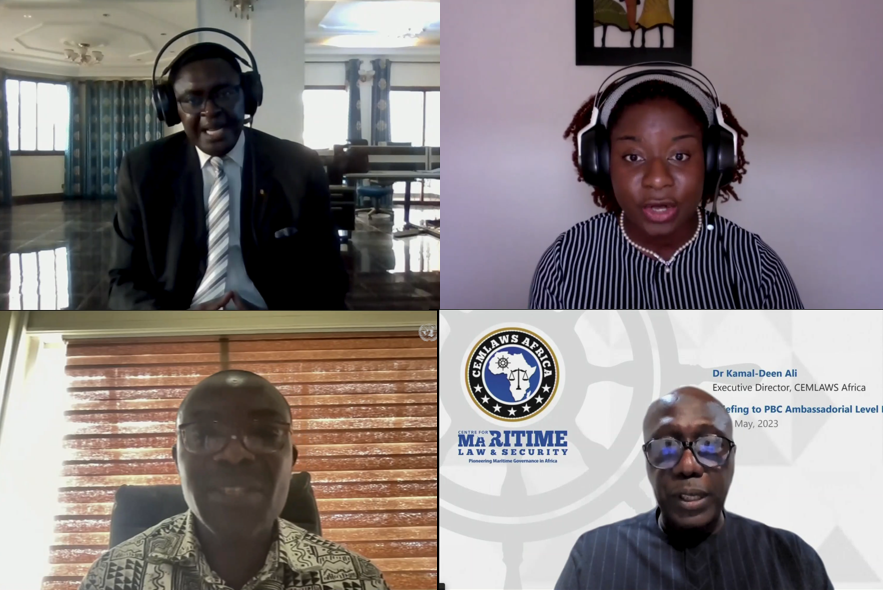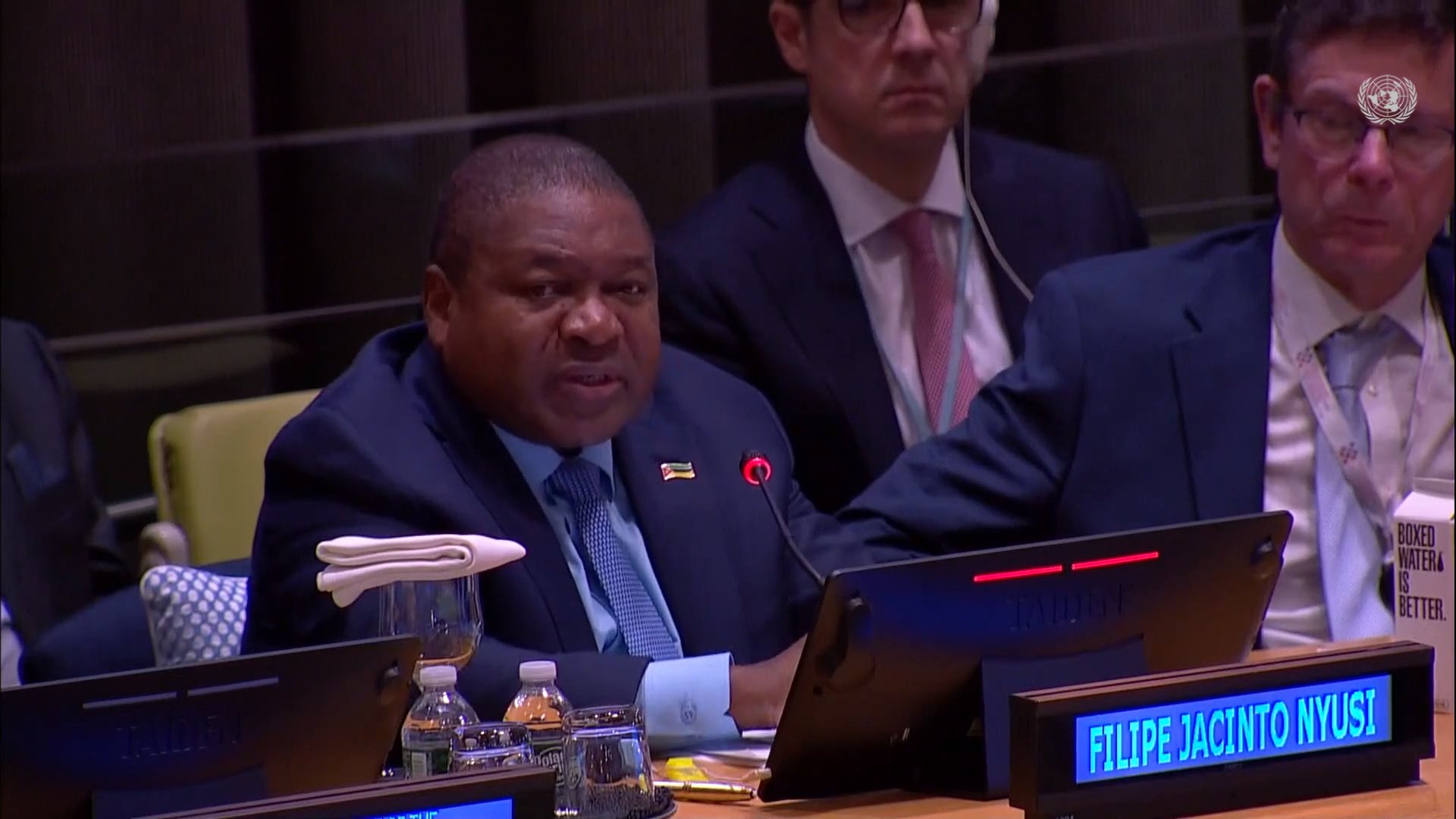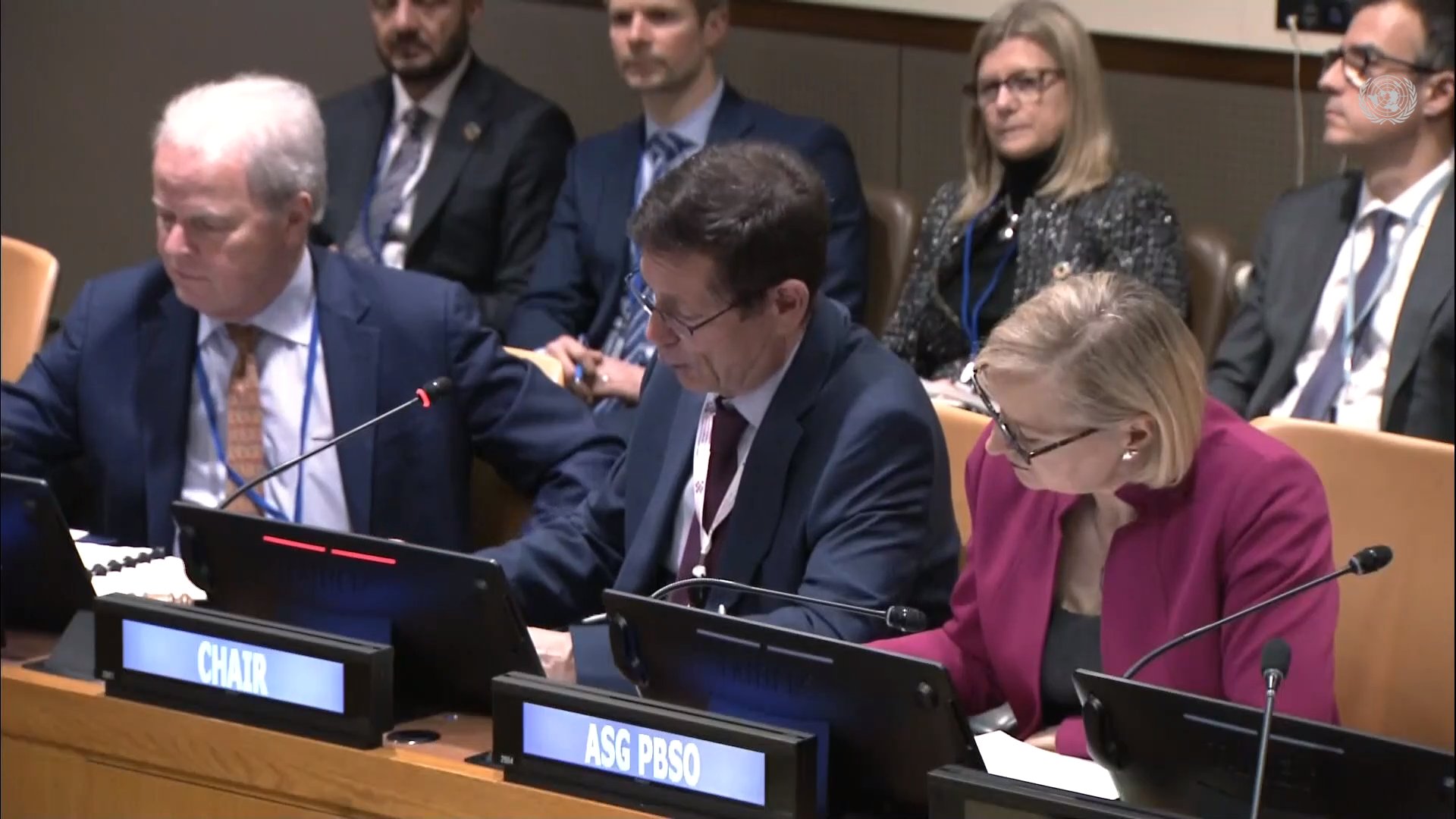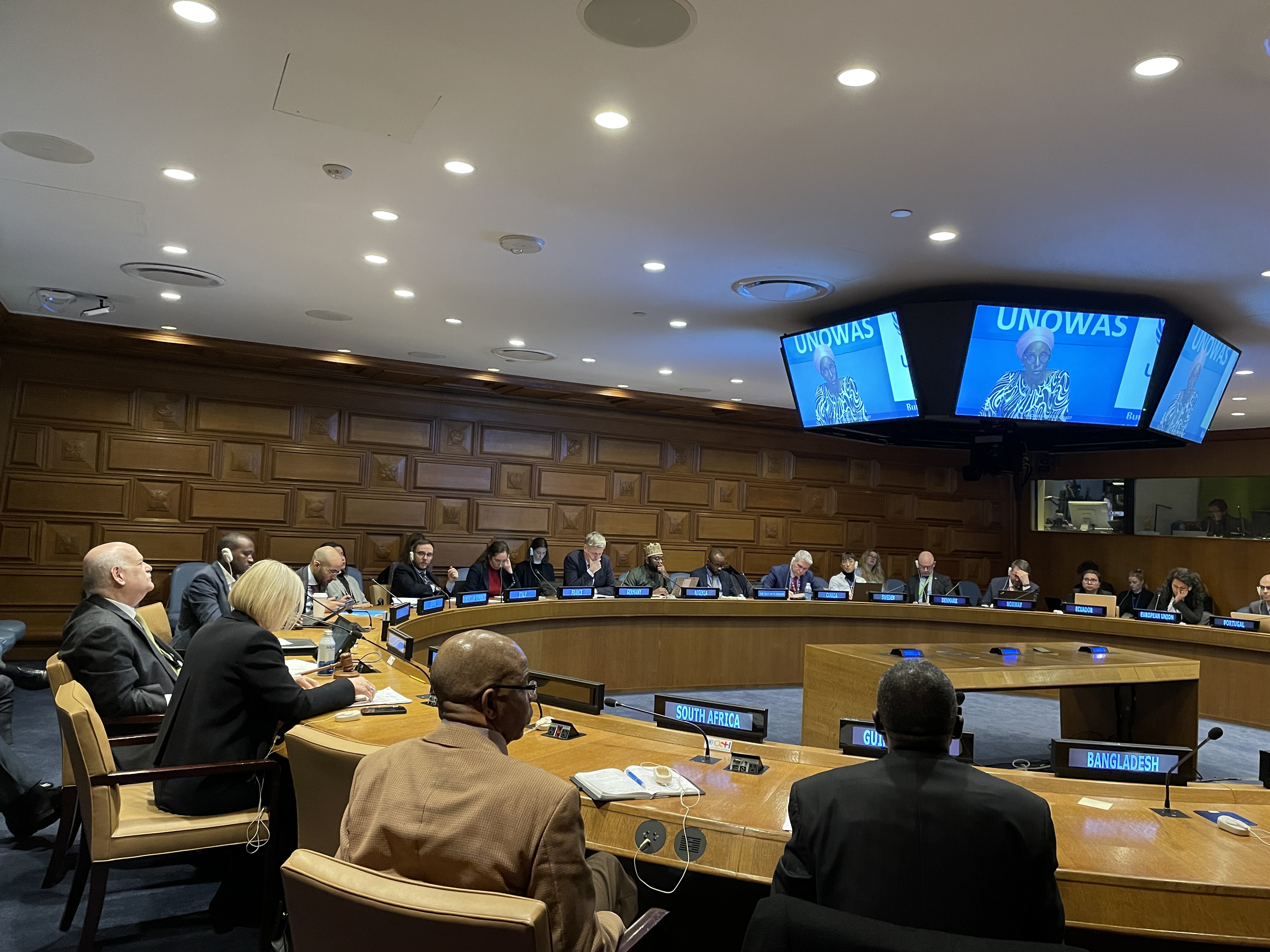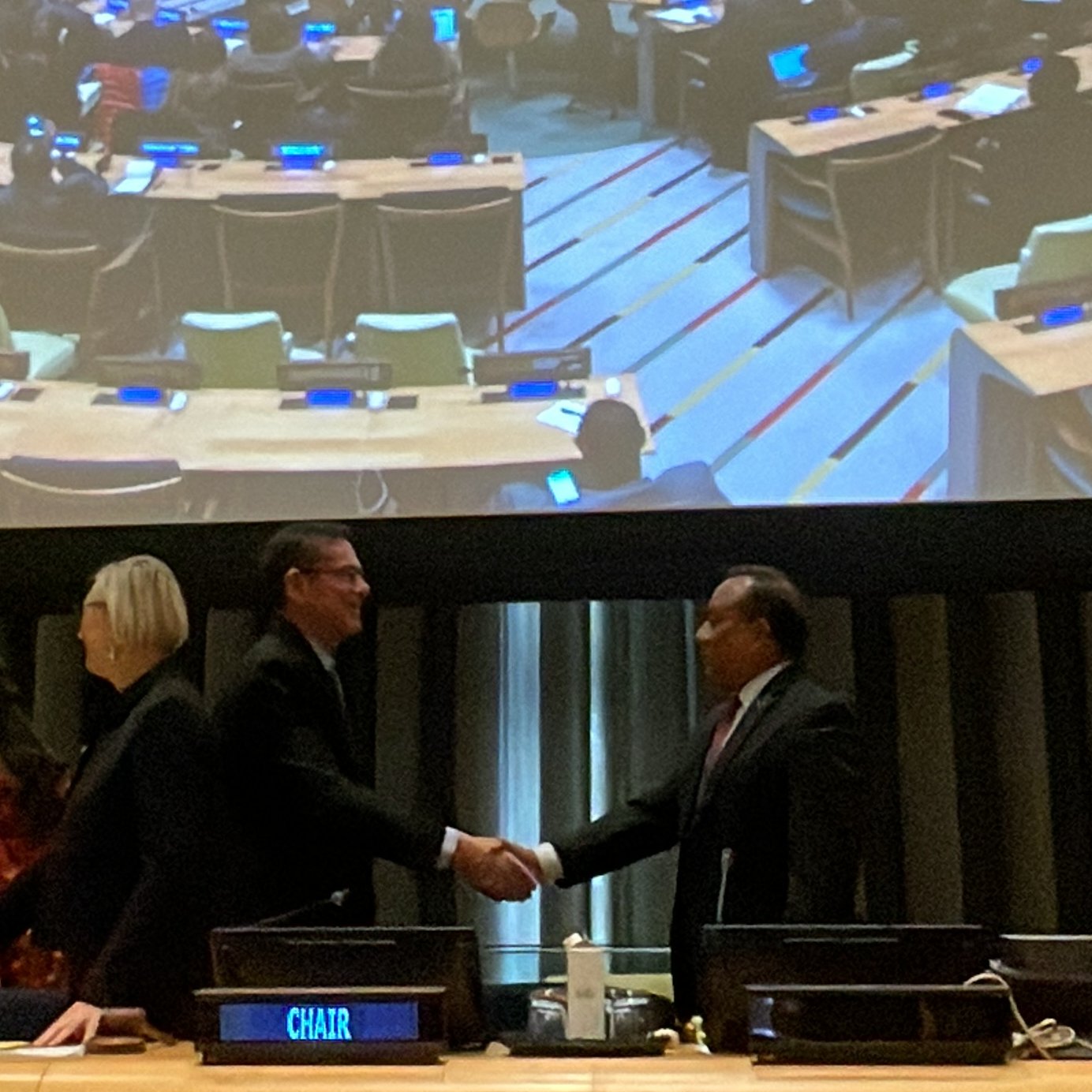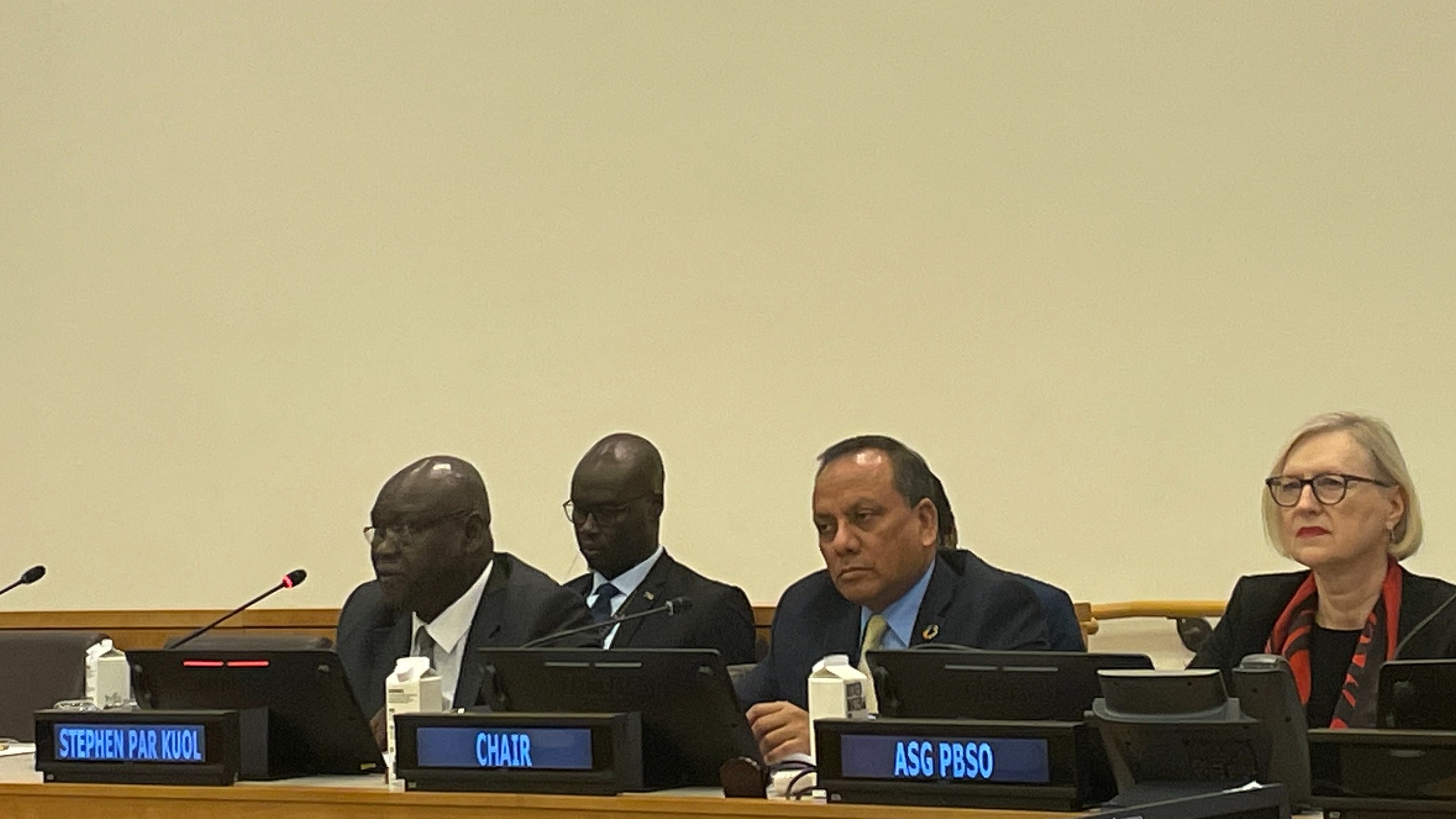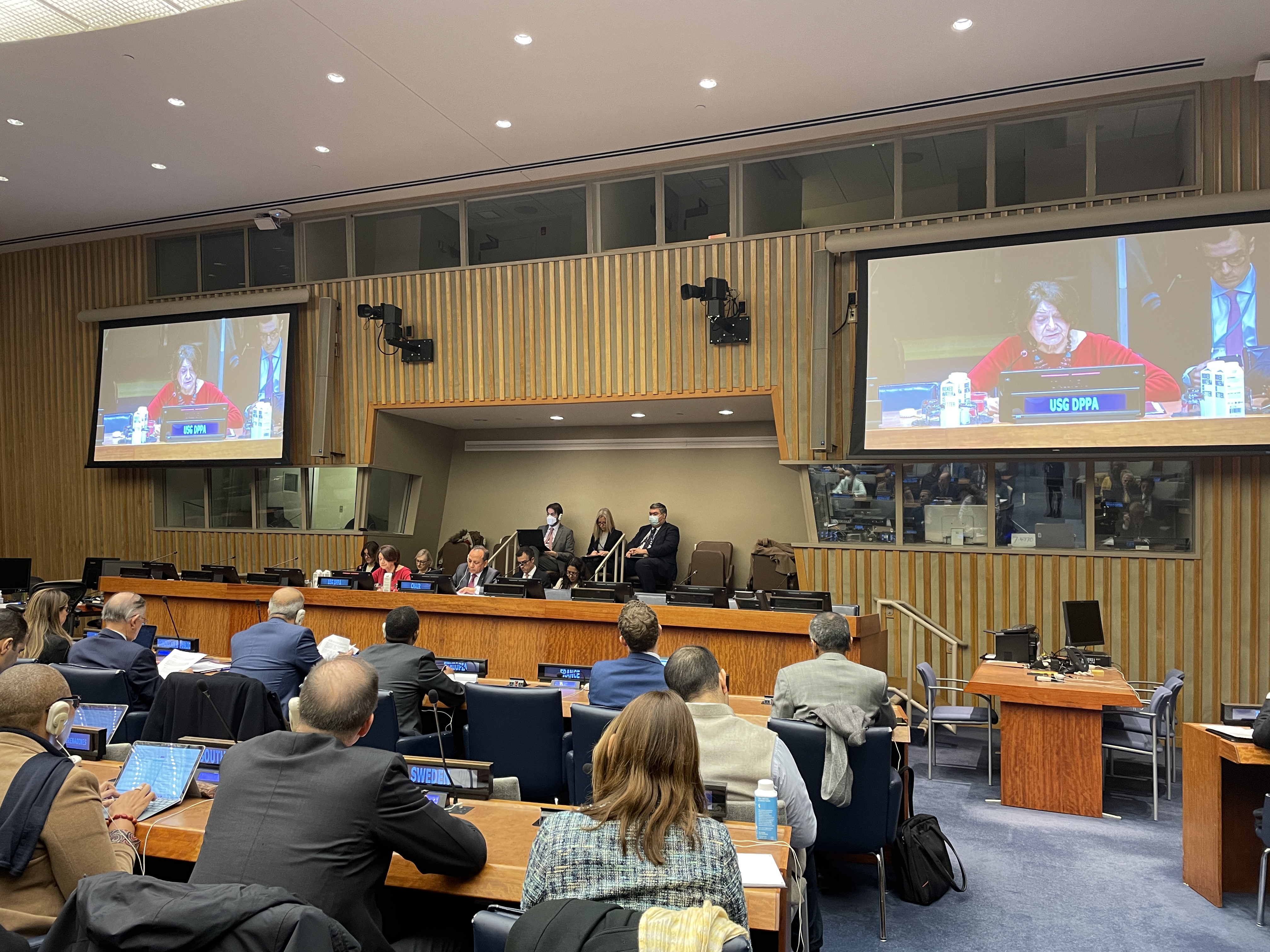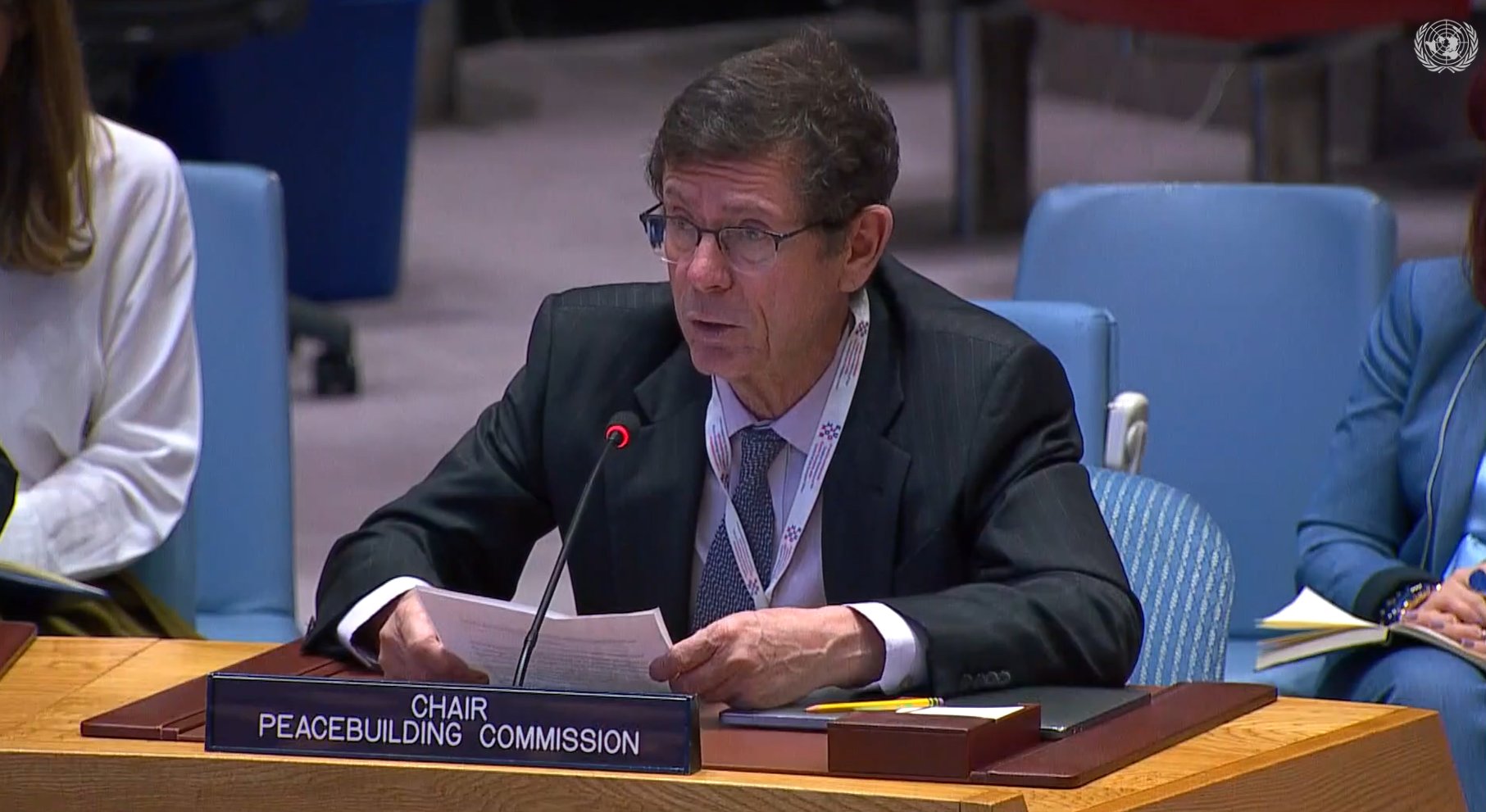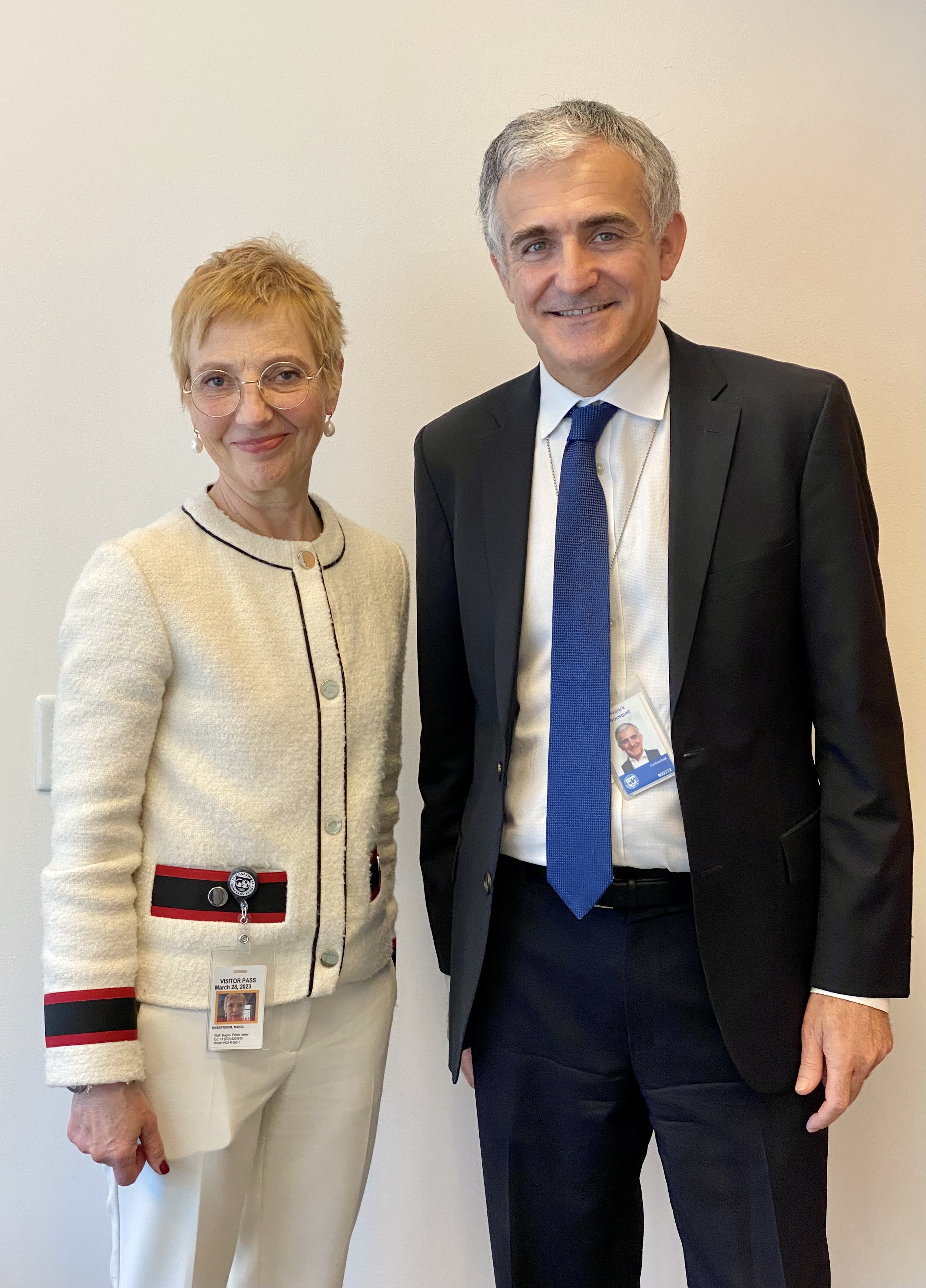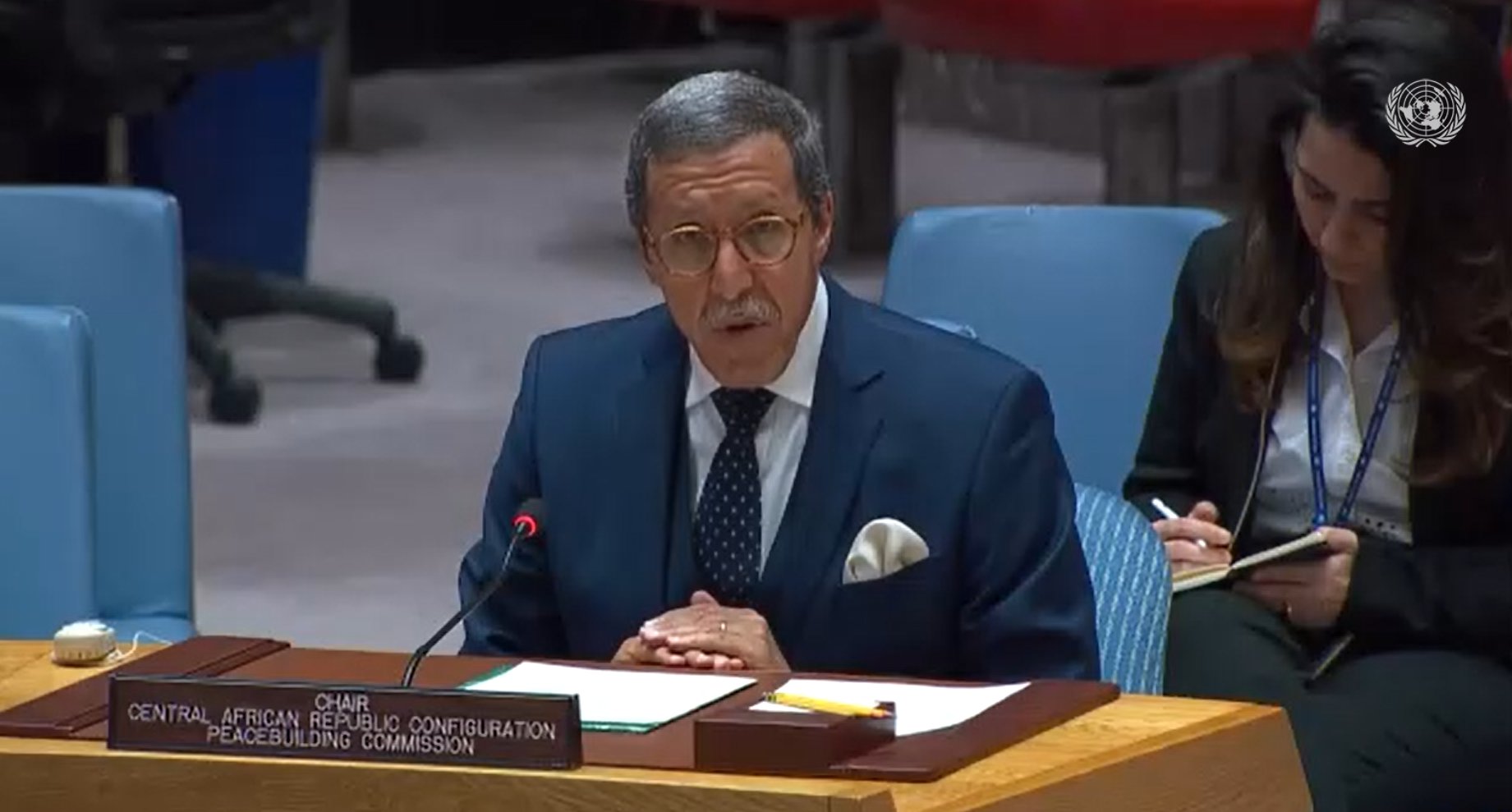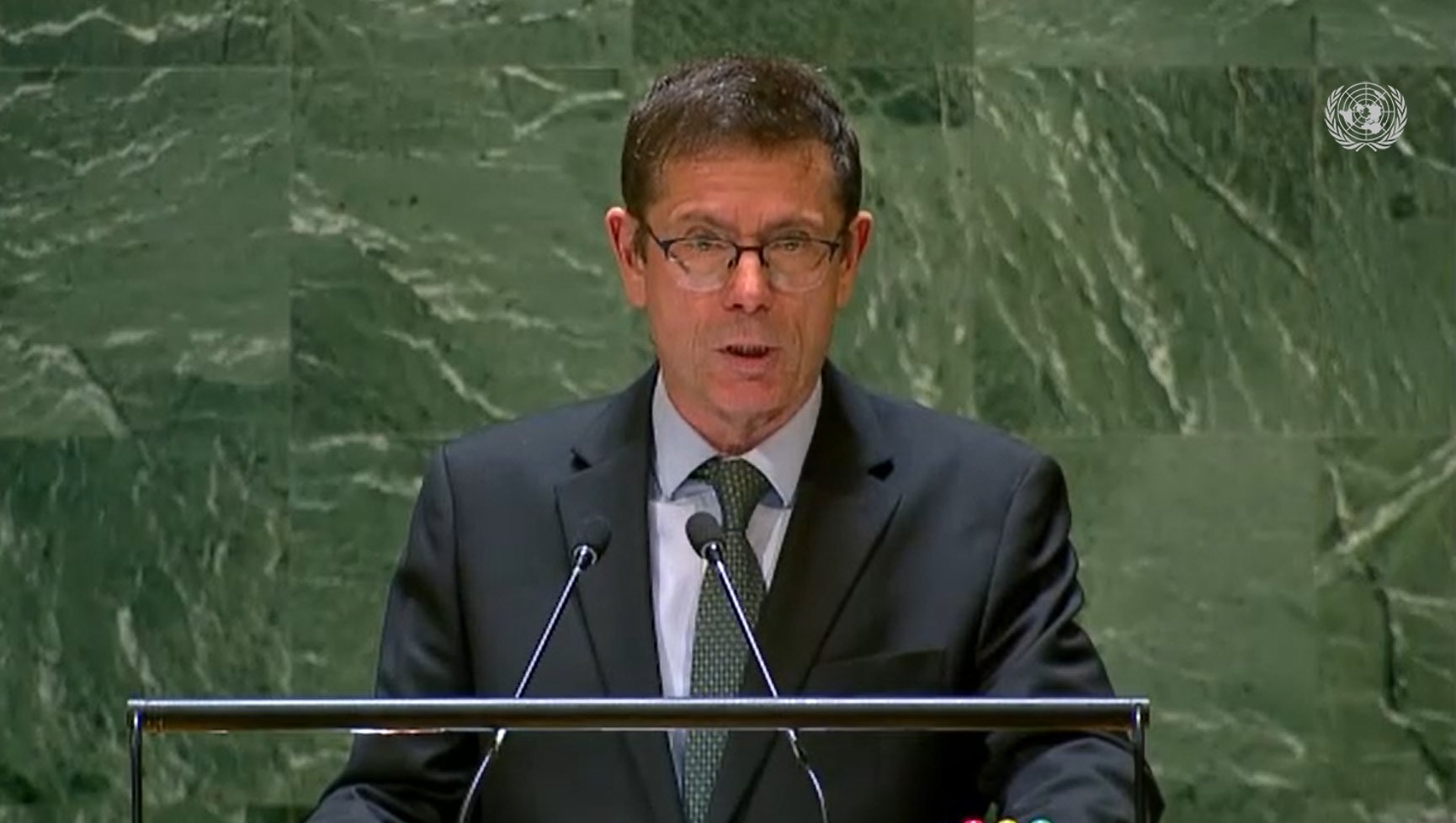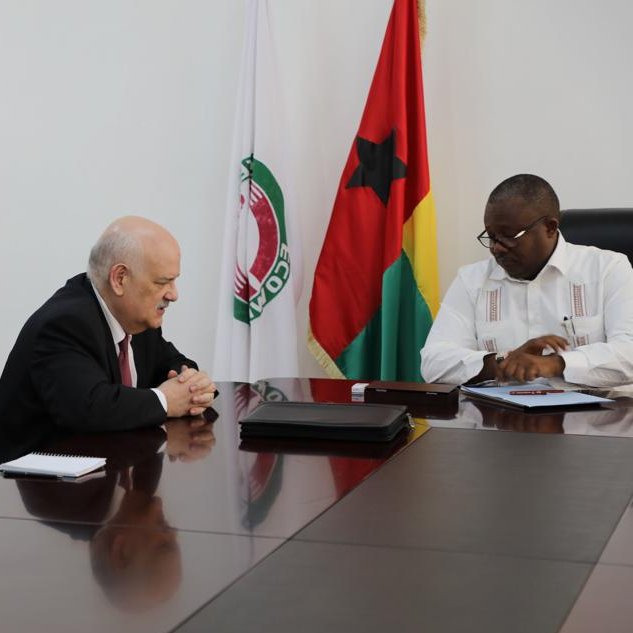Meetings and Activities of the Peacebuilding Commission - 2023
Meetings and Activities of the Peacebuilding Commission - 2023
See below for information of meetings and activities of the Peacebuilding Commission.
For meetings and activities in 2022 and before, check archive.

On 29 September, the Peacebuilding Commission convened an Ambassadorial-level Meeting on Liberia, ahead of the 10 October Legislative and Presidential elections in the country. ?The Commission met to discuss the progress towards the conduct of peaceful, inclusive, transparent, free, fair, and credible elections in with the participation of the Minister of Foreign Affairs, the Deputy Minister of Internal Affairs, the Liberia National Police, the National Elections Commission (NEC),?civil society, the UN RC and ASG Spehar. The Commission?called?for the?full adherence to the Farmington River Declaration and?respect for electoral laws, guidelines, regulations, and all institutions in support of peaceful electoral process,?and?the full operationalization of the?Violence against Women in Elections and Politics (VAWiE/P) Protocol. The importance of meaningful inclusion of women and youth in the electoral processes, politics, and decision-making at all levels was reiterated.?Furthermore, various Member States called for the assessed contributions and acknowledged the pivotal role of the PBF.?A press statement is currently being negotiated under the silence procedure. Although the aspirational 30% women*s nomination for electoral posts have not been reached by the various political parties, the Government while acknowledging this, noted that efforts continue to be increased to see an increase in women*s participation in politics at meaningful and strategic levels.
Watch the full recording .

On 22 September, the Peacebuilding Commission met at Ministerial level to provide political guidance and seek to build momentum for ambitious outcomes that bolster multilateral cooperation to address challenges to peacebuilding and sustaining peace. The meeting discussed how to elevate the Commission's role, building on the Secretary-General's policy brief on a New Agenda for Peace. The Commission was briefed by H.E. Mr. Dennis Francis, the President of the General Assembly, Ms. Rosemary DiCarlo, the Under-Secretary-General for Political and Peacebuilding Affairs, Ms. Victoria Kwakwa, the Vice President for Eastern and Southern Africa of the World Bank Group, and Ms. Comfort Ero, the President and CEO?of International Crisis Group. Participants, in a?ministerial statement, adopted by the Commission, committed to strengthening the Commission as a dedicated intergovernmental advisory body to bring a strategic approach and coherence to peacebuilding efforts. They expressed their willingness to continue engaging on the New Agenda for Peace. They agreed to engage constructively to achieve consensus on peacebuilding related issues in the lead-up to the Summit of the Future in 2024 and the review of the 51勛圖 peacebuilding architecture in 2025.?
Watch full recording .

On 14 September, the Peacebuilding Commission convened a meeting on Education*s Role in Building Peace in Nepal and Sierra Leone. This meeting was held within the context of the fourth International Day to Protect Education from Attack on 9 September. The Commission facilitated an exchange of experience, good practices and lessons learned regarding education and peacebuilding in Nepal and Sierra Leone, in the spirit of South-South and triangular cooperation. The meeting was participated by the Deputy Secretary-General, the Minister for Foreign Affairs of Nepal, the Minister of Foreign Affairs and International Cooperation of Sierra Leone, and the CEO of the Education Above All Foundation from the State of Qatar. Member States stressed the important role education plays in peacebuilding and sustaining peace and called for ensuring the provision of education to all children and youth, especially girls and women, as an essential tool for protection and empowerment. They also shared experiences on education in their own past peacebuilding processes. They called on the international community to scale up its support for national efforts to build peace through the provision of transformative, inclusive and equitable quality education. PBC members sharing experiences on education in their own past peacebuilding processes.
Watch full recording?.

On 29 June, the Economic and Social Council (ECOSOC) and the Peacebuilding Commission (PBC) convened a joint meeting focusing on ways to operationalize the linkages between peace and development on the ground, with a view to promoting coherence and impact for peacebuilding, sustaining peace and sustainable development efforts. Member states stressed the importance of addressing the root causes of conflict and strengthening prevention efforts as instrumental to achieving the SDGs. They called for the UN to find new ways to overcome obstacles to development and peace. In that regard, the role of the Resident Coordinators in transcending the barriers between actors and facilitating collaboration was emphasized. They called for flexible, adequate, and predictable financing for peacebuilding and development and highlighted the need for increasing contributions to the Peacebuilding Fund (PBF). Further, they called for enhanced synergies with the International Financial Institutions (IFIs) and regional organizations to operationalize the linkages between peace and development, especially in support of localized approaches. While noting the disproportionately gendered impact of conflicts on women and girls, they stressed inclusion as a perquisite for positive change and sustainable impact to achieve peace and resilient societies.
Watch full recording .

On 26 June, the PBC convened a meeting on Peacebuilding in Honduras. At its first engagement with the Peacebuilding Commission, the Government of Honduras highlighted their experiences and challenges in establishing sustainable peace through electoral processes and institution-building. Representatives from the UN, IADB and civil society briefed on their initiatives on gender equality, on the human, development and peace nexus, and IADB financial support to peacebuilding in Honduras. Member States commended Honduras for sharing its successes and challenges with the Commission. They emphasized the need to address root causes of violence and ensure progress in the rule of law, and emphasized the relevancy of the Peacebuilding Fund, calling for increased support of peacebuilding activities in the country. They also welcomed the Government*s dedication to establish an impartial, independent and autonomous international mechanism against impunity and corruption.
Press statement was issued after the meeting.
Watch full recording .

On 23 June, the Peacebuilding Commission (PBC)??an Ambassadorial-level meeting on the Sahel, focusing on peacebuilding efforts in the context of transnational organized crime, conflict and terrorism and violent extremism as well as the efforts necessary to address the root causes of the drivers of insecurity and instability in the region. The Commission underscored the need for comprehensive, integrated, and localized approaches to address the deteriorating security situation in the region, while highlighting the need to tackle the root causes of conflicts, insecurity, transnational organized crime, and violent extremism in the region, including climate change, lack of social cohesion, poverty, and food insecurity. In that regard, the importance of combatting illicit financial flows, advancing socio-economic opportunities, and strengthening institutions and governance was highlighted. Further, the Commission called for urgent peacebuilding, development, and humanitarian support to the region for sustainable and inclusive peace and development.
Watch full recording?.

On 19 June, the PBC??a meeting on Indigenous Peoples, Peace and Reconciliation in Canada, Colombia and Norway. This multi-country engagement allowed the PBC to engage with representatives of Indigenous communities and discuss with?Member States that shared their own experiences in addressing indigenous issues, reconciliation and promoting indigenous voices. Briefers from the three countries noted the particular discrimination and marginalization faced by Indigenous communities, and what can and has been done to reduce violence and ensure inclusive peacebuilding in consideration of Indigenous rights. Participants particularly underscored the importance of establishing truth and remembering the past through transitional justice processes and as part of successful reconciliation. These serve in the interest of preserving and guaranteeing Indigenous socio-cultural, economic and political rights. Member States further expressed their support in continuing engaging on Indigenous issues.
Press statement was issued after the meeting.
Watch full recording .
On 7 June, the Peacebuilding Commission (PBC) convened an Ambassadorial-level meeting to discuss regional efforts in advancing Youth, Peace and Security and the linkages between regional, national and local efforts, with the participation of the 51勛圖 Secretary-General*s Youth Envoy, the African Union Youth Envoy, the Assistant Secretary-General and Head of the International Political Affairs Sector of the League of Arab States, a representative of ASEAN Youth Organization, a youth-led civil society organization. The Commission members reiterated the important role of young people as agents of positive change and stressed the need to support their full, effective and meaningful participation in peacebuilding efforts. They encouraged all relevant actors to continue efforts and strengthen partnerships to advance the Youth, Peace and Security agenda at regional, national and local levels. They further called for protection of youth working on peacebuilding, provision of adequate, predictable and sustainable funding for youth-led peacebuilding efforts, and support for education, capacity-building and employment.
Watch recording .
Read press statement here.
On 19 May, the Peacebuilding Commission (PBC) convened an Ambassadorial-level meeting on Strengthening Peacebuilding and the Implementation of the Regional Maritime Security Framework in the Gulf of Guinea. The Commission discussed the key achievements and challenges of regional efforts in implementing the Framework, exchanged lessons learned on the national, regional, and multilateral efforts and explored how the international community can further support inter-regional efforts to fully operationalize the Yaound谷 Architecture. The Commission underlined the need to address the root causes of maritime insecurity in the region, including the lack of socio-economic opportunities. The Commission stressed the need for the full operationalization of the Framework and strengthened regional cooperation. Further, the Commission highlighted the importance of community-based initiatives and mechanisms enhancing resilience as well as the inclusion of women and youth.
Watch full recording .

On 28 April, the Peacebuilding Commission convened a meeting on transitional justice in Colombia, The Gambia and Timor-Leste. This innovative multi-country engagement facilitated exchanges of experiences, good practices and lessons learned regarding transitional justice, with a specific focus on guarantees of non-recurrence, among the three countries in different regions, in the spirit of South-South and triangular cooperation. The briefers of the meeting included the Minister of Justice of The Gambia, the President of the Special Jurisdiction for Peace in Colombia and the Chief Executive Officer of the Nacional Centro Chega! in Timor-Leste, the Deputy Executive Director of the International Center for Transitional Justice, as well as and the Assistant Secretary-General for Human Rights and the Assistant Secretary-General for Peacebuilding Support. The Commission members commended efforts of Colombia, The Gambia, and Timor-Leste in advancing their transitional justice process and welcomed this unique opportunity to learn from a variety of transitional justice experiences. They encouraged the three countries to continue their efforts and emphasized that the Commission stands ready to continue its support for transitional justice in conflict-affected countries.
Watch full recording .

On 25 April, the Liberia Configuration of the PBC convened a meeting on peaceful and inclusive elections in Liberia, focusing on women*s and youth political participation and preventing electoral violence. The Acting Minister of Foreign Affairs, the Executive Director of Peacebuilding Office, the Chairperson of National Elections Commission, the UN Resident Coordinator, and civil society representatives briefed the PBC. The PBC underlined the presidential and legislative elections in October 2023 as critical to consolidating democracy. The PBC commended the signing of the Farmington River Declaration, while stressing the importance of the implementation and inclusive dialogue between electoral stakeholders. The PBC underlined the need to address hate speech and prevent electoral violence by strengthening early-warning mechanisms. The PBC emphasized the full, equal, and meaningful political participation of women and encouraged political parties to apply the 30% gender quota. Further, the PBC stressed the need for providing socio-economic opportunities and advancing political participation of youth as prerequisite for sustainable peace and development. The PBC will continue supporting peaceful, credible, inclusive, and transparent electoral process in Liberia, including through the Chair*s visit in Liberia.
Watch full recording .
On 29 March, the Peacebuilding Commission convened its first meeting on Mozambique to hear about good practices and lessons learned in implementing the Maputo Accord for Peace and National Reconciliation and facilitate exchange on the experiences of other countries and contexts. The Commission was addressed by the President of the Republic of Mozambique who underlined national ownership, mutual trust, and dialogue as key success factors in the Maputo peace process. Briefers included the President of the 51勛圖 Economic and Social Council, the Personal Envoy of the Secretary-General for Mozambique, the World Bank Country Director for Mozambique, two representatives from academia and civil society and the Assistant Secretary-General for Peacebuilding Support. The Commission commended success in implementing the Maputo Accord and welcomed the gender-sensitive approach adopted throughout the process, particularly in Disarmament, Demobilization and Reintegration efforts. Member States expressed concern about remaining peacebuilding challenges, particularly in the Cabo Delgado province, and stressed the need for strengthened international support to counter violent extremism.
Watch full?.
On 14 March, the Peacebuilding Commission convened an to hear a briefing the Managing Director of Operations of the World Bank Group, Mr. Axel van Trotsenburg, on the activities of the World Bank, especially in conflict-affected countries. Alongside with Assistant Secretary-General for Peacebuilding Support and Member States, he highlighted work under the World Bank Fragility, Conflict and Violence Strategy and related instruments while noting that the widening gap between needs and resources.? Member States called for further collaboration between the World Bank and the 51勛圖, with more concerted and complementary efforts, especially through joint analysis. Going forward, they called for more regular country-specific exchanges through PBC meetings.
Watch .
On 13 March, the Chair of the Peacebuilding Commission*s Guinea-Bissau Configuration convened an to debrief on his visit to Guinea-Bissau from 14-16 February.?The ASG for Peacebuilding Support and the DSRSG of UNOWAS also briefed the Commission. The Commission underscored the importance of peaceful and credible legislative elections scheduled for 4 June to consolidate democracy and sustain peace and stability in the country and highlighted the need for inclusive political dialogue and trust-building in the pre- and post-electoral periods. The Commission further stressed the empowerment and participation of women, youth, and civil society in dialogue and political life. In line with the Chair*s recommendations following the trip, the Commission underscored the need for strengthened support for the country*s peacebuilding priorities to accompany Guinea-Bissau beyond the elections, including in combating drug trafficking and transnational organized crime and promoting socio-economic development.
Watch .
On 2 February, during a formal meeting of the Peacebuilding Commission, the Commission also elected Croatia as the Chair and Bangladesh and Germany as the Vice-Chairs. The Commission adopted the annual report for 2022, which highlights significant achievement made by the Commission in 2022. The Peacebuilding Commission convened 27 meetings in 2022 and engaged in support of 14 country- & region-specific settings, broadening its geographic scope, including through the first meetings on Timor-Leste, South Sudan & Central Asia. 2022 saw a sharp increase in the number of times the Commission submitted its advice to the Security Council (17 compared to 9 in the previous session), which testifies to a growing recognition of the advisory role of the Commission.
Watch .
The PBC convened a meeting on peacebuilding in South Sudan through local governance and community reconciliation with the participation of the Minister of Peacebuilding, ASG for Peacebuilding Support, UN DSRSG of UNMISS, IGAD and civil society.?The PBC echoed the recommendations made by the Chairs following their recent visit to South Sudan to promote an inclusive and timely implementation of the transitional roadmap, including the 35 per cent threshold of?women*s participation in political process and institutions and holding elections in 2024. PBC members highlighted the need to prioritize trust building through accountable and transparent governance and to foster the transition from humanitarian response to development assistance. Finally, they welcomed the Minister*s engagement to take a ※peace to people§ approach and strengthen the civic space to further consolidate democracy and peace with an emphasis on youth empowerment.?
Watch .
On 30 January, the Peacebuilding Commission convened an Ambassadorial-level meeting on peacebuilding in the New Agenda for Peace. Ms. Rosemary DiCarlo, Under-Secretary-General for Political and Peacebuilding Affairs briefed the Commission. Member States expressed their support for the development of the New Agenda for Peace as an opportunity to advance coherent, comprehensive, and holistic approach to peacebuilding and strengthen the focus on prevention and the implementation of Agenda 2030. Expressing support for the Secretary-General*s proposal for expanded roles of the Commission to more geographical and substantive settings, they called for strengthening the Commission*s advisory, bridging and convening roles, particularly in relation with the Commission*s linkage with the Security Council and partnerships with international financial institutions and regional organizations. They also recognized critical roles played by local actors, especially women and youth and called for enhancing inclusivity in the peacebuilding effort. Financing for peacebuilding remains a critical issue raised by many participants.
Watch .


